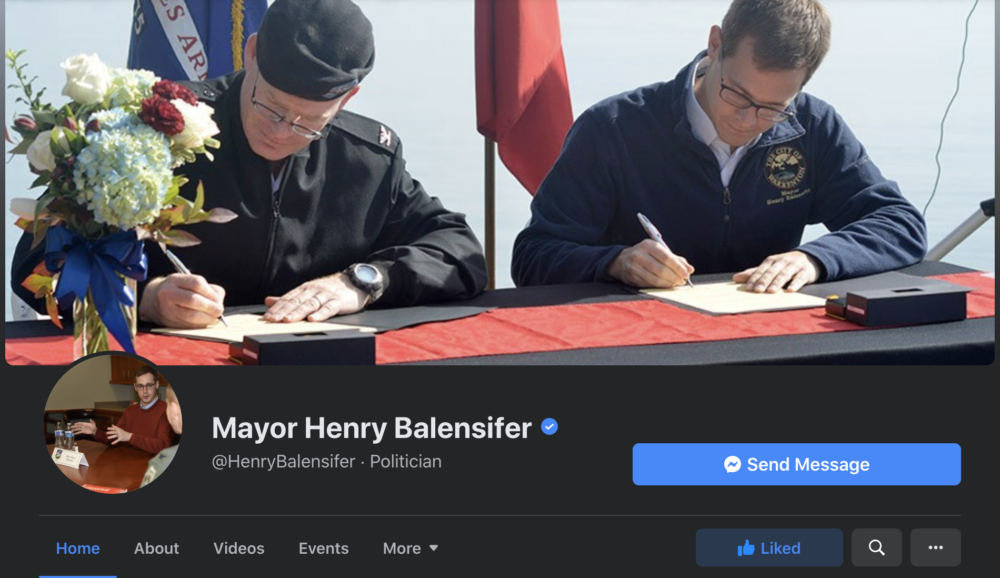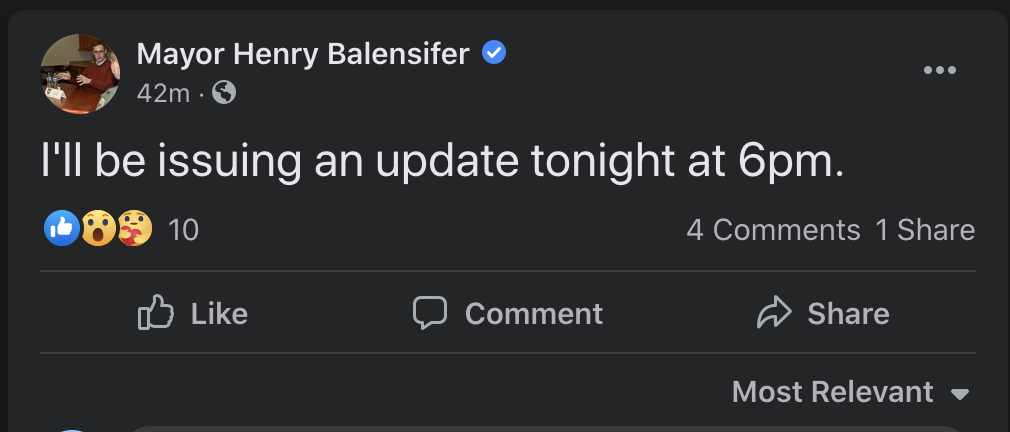Local leaders, restaurant managers, boat captains, CEOs and heads of housekeeping can all agree on one thing: how you talk to your people matters. We asked two people who professionally communicate from a (now virtual) soapbox for their best tips and tricks of sounding less like a politician so people actually listen. Straight from Mayor Henry Balensifer of Warrenton and former Mayor Jake Pieper of Brookings a how-to guide:
1. Remember your local voice has a huge impact.
The onset of COVID-19 brought a number of health and economic concerns to Oregon Coast communities like Brookings and Warrenton. Community members immediately started reaching out for answers from their local officials because they trusted they could get a straight answer from someone they knew. Especially when leaders, like Pieper, are also their neighbors and have kids on the soccer team. Never forget how incredibly valuable your local role is in the face of complicated and sometimes global issues.
In fact, Mayor Balensifer’s communications to his city of Warrenton were so well-delivered that he was receiving calls from other parts of the coast as well as Italy and the Philippines to learn from him. But how did they discover what he was up to in his city of 5,549 people? Read on!

2. Meet the people where they are at.
So what’s the best way to communicate with your community or team? Meet them where they are at by identifying what channels they use (Facebook, email, Basecamp, radio, phone, etc.) and/or prefer to hear from you on. Both leaders in this article have use Facebook to communicate with their demographics and do an excellent job of bringing value to their conversations by talking about relevant issues and providing additional resources they have learned about.
Mayor Balensifer has an official page which you can check out and possibly even see a guest appearance of Scruffles the Cat, First Cat of Warrenton. He finds that his updates are shared in other interest groups like highway condition groups, birding interest groups and so on which shows that his updates have a very large and effective reach. Topics can range from unsafe elk interactions to accessing the DMV and COVID19 rollbacks. He prefers to only do updates when there is something important to discuss (rather than on a weekly schedule).
Pieper has two strategies going on. The first is a weekly radio show called Building Bridges where he dives right into divisive and difficult topics like finding common ground, homelessness, and national division. He said this platform was meant to reach an older demographic that might not be on Facebook. Additionally, he has ‘Dining Room Chats with Jake Pieper’ where you can get the latest scoop on what Brookings is working on and even catch his 15-year old son playing the guitar.
Wait, did we just mention politicians who are authentic in updates and even tackle ‘hard to talk about issues’? Yes. Let’s talk about how.
3. Talk like a normal human being.
Mayor Balensifer mentioned that citizens traditionally expected politicians to be the most polished people in the room. Not anymore. That’s why he speaks straight from his desk and often off the cuff. He’ll jot down a few notes before he goes live but really he’s answering them to the best of his knowledge. He believes his role is to give his constituents current information and not tell them how to interpret it.
Pieper has a similarly relaxed and honest style and speaks from his dining room table, sometimes with a family member strolling by. The only difference between running into him at the store and hearing his update from home is the location. He will ask for any questions earlier in the day and do his best to answer them. He emphasized the need to be vulnerable when communicating on both his Facebook and radio channels. Judging by the comments left on his videos, people appreciate the honesty they interpret from his communications.
In case you didn’t write this down, having a script is not recommended.
4. Ignore the trolls.
What happens if you don’t have a script and you mess up? Won’t people harass you in the comments, also known as trolling? From Warrenton to Brookings, people make mistakes when they are speaking and sometimes have to course correct, it’s normal. If you are bringing value to your conversations by answering time sensitive questions and offering solutions and support you’ll find there aren’t that many trolls.
In the case of Mayor Balensifer and Pieper, the occasional troll has been chased off by the constituents who are tuning in regularly. Their advice is to ignore the trolls and focus on the task at hand.

5. Be willing to change.
When Pieper first started his Facebook live updates as the Mayor of Brookings he was eating a lot of “humble pie” because he was admitting mistakes he had made. It gained a lot of trust with his audience and constituents even though it isn’t something politicians often do. His advice is to not get stuck in the normal and be willing to change as the times do.
Mayor Balensifer mentioned that he has made changes as well with his communications as he has learned what works and what doesn’t. It’s very likely that he will continue to embrace changing communication needs as they come, especially since his city has been steadily growing since 2011.
Neither of the interviewees have used TikTok. Yet.
So there you have it, a how-to guide on communicating in a natural and effective way with your community, team or group.
– Written by OCVA